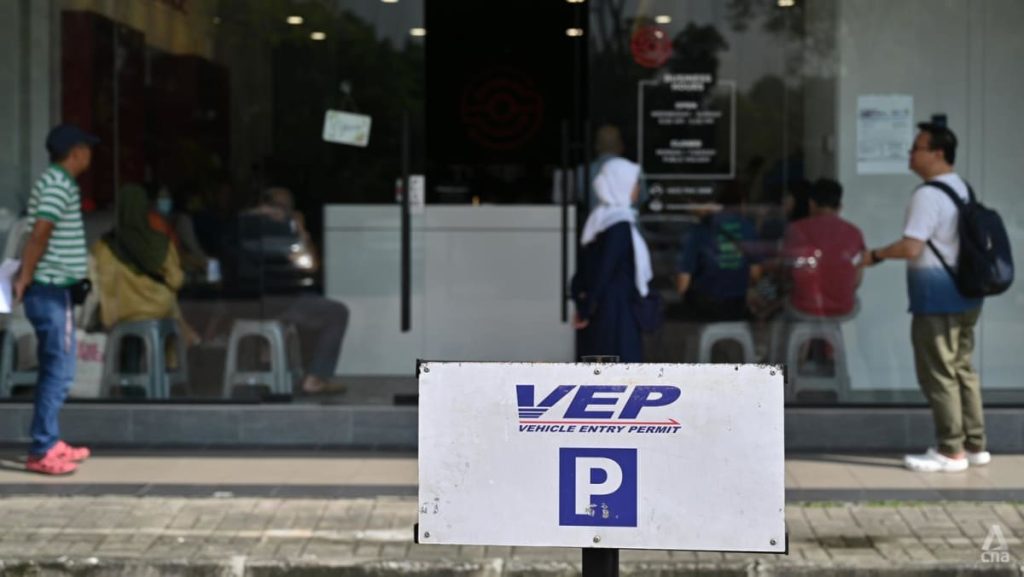The Malaysian authorities are confident that they will address all concerns and queries regarding the Vehicle Entry Permit (VEP) system before the October 1 deadline. The purpose of the VEP is to tackle car theft and cloning syndicates, as well as prevent vehicles from leaving the country without paying fines for traffic offenses. The implementation of the VEP has been delayed several times due to technical issues with the portal and poor implementation at land checkpoints during a pilot project.
Some drivers, like Singaporean Ben Lee, are unable to troubleshoot problems with the VEP system. Lee purchased a used car in 2022 that was registered under a previous owner in the system, making it impossible for him to apply for VEP. This issue is crucial for Lee’s job as he is required to travel to various parts of Malaysia for work. He hopes that the deadline will be extended beyond October 1 to give him more time to resolve the issue.
Another individual facing issues with the VEP system is 71-year-old Mr. Seah Kim Por, who applied for a VEP in 2019 which is expiring in October 2024. He has been unable to renew his application on the JPJ portal and has not received any response to his emails. Seah believes that the process should be made easier for individuals who have already signed up early for the VEP and shouldn’t be left to worry about their travel after the expiration of their current permit.
Private-hire car driver Ms. Nurliyana Salleh is also facing challenges with the VEP system as she is unable to register her car because it is leased from a rental company. Salleh enters Johor Bahru every week and is unsure of how to proceed with the registration process. Some rental companies in Singapore, like Current Leasing, are working to ensure that their drivers who need the VEP will not be inconvenienced. However, they have faced difficulties in completing the registration process due to the requirements being neither robust nor versatile.
Shaun Lee, the general manager of Current Leasing, explained that the process for applying for the VEP has been difficult for their fleet of vehicles. The requirement for each vehicle to be tied to a TouchNGo e-wallet poses administrative challenges for the company. Opening an e-wallet account for each car is not practical, and using one e-wallet for all cars could risk not knowing the individual expenses of each vehicle. As a result, the company has been unable to complete the registration process for their fleet of vehicles.


